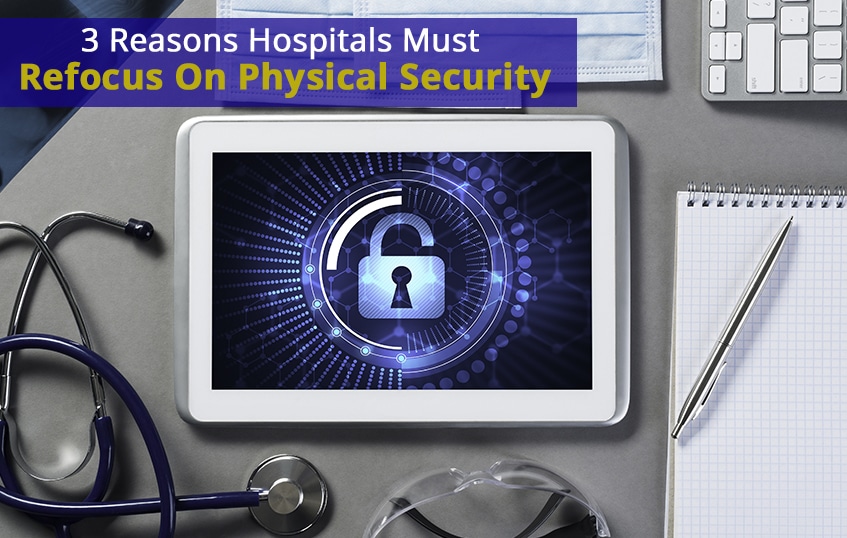

3 Reasons Hospitals Must Refocus On Physical Security
The pandemic has shifted the healthcare industry’s security focus towards hospital capacity concerns and mitigating viral spread. Efforts in eliminating violence and theft have fallen to the wayside. Behind the scenes, security measures need to be put into place to keep the healthcare atmosphere physically safe. These are the top three reasons why your facility needs to refocus on physical security.
Hospitals Must Refocus On Physical Security
Internal Theft
Hospitals need to refocus their security efforts on physical security to reduce internal theft that plagues the healthcare system. Patient information, medical equipment, and prescription pills are most frequently coveted by thefts internally. Healthcare professionals (HCPs) are indeed regarded as the champions of good health habits. That said, substance misuse and addiction rates are no different among HCPs than in the general population, and HCPs demonstrate significantly higher levels of opioid abuse. Medication theft can result in millions of dollars in losses annually every year. Physical security measures such as video surveillance and access control can monitor and manage who is accessing what and when and minimize the likelihood that HCPs will be inclined to access medications illegally.
Disorderly Conduct
The second reason for refocusing on physical security within hospitals is due to occurrences of disorderly conduct. Receiving medical care can be a sensitive and emotionally turbulent time for many patients and visitors, which can sometimes result in emotions getting out of control and leading to disorderly conduct. Taking additional time to control and even discipline patients and visitors can take time away from patient care. Visitor management systems (VMSs) and panic buttons can streamline response times in addressing disorderly conduct and reduce the chances of repeated incidents.
Violence Between Patients & Staff
Lastly, and perhaps the most critical reason for refocusing on physical security within healthcare is to prevent physical violence against HCPs. The National Institute for Occupational Safety and Health (NIOSH) identifies workplace violence into four basic types. Types II and III are the most common in the health care industry:
- Type I: Involves “criminal intent,” where the criminal has no relationship to the hospital or its employees.
- Type II: Involves a patient with a relationship with the hospital and becomes violent while receiving care.
- Type III: Violence involves an employee who attacks or threatens another employee.
- Type IV: Violence involves interpersonal relationships with the intended target but none to the business.
For medical staff to perform their roles most effectively when doing so is especially critical, they must feel safe in their environment. Implementing physical security measures can drastically reduce instances of physical violence within the healthcare facility.
These are some of the many physical challenges faced within healthcare facilities. Here are some more specific physical security solutions SSP offers within healthcare facilities that create a safe and secure environment for patients, staff, and visitors:
- Access Control:
- Motion Sensors
- Intelligent Controllers
- Video Surveillance
- Panic Buttons
- Electronic Locks
- Visitor Management
- Staff Duress Systems
- Infant Security Systems
We Can Support You Through It All
SSP is here to help you evaluate and find the right physical security solutions that meet your facility’s unique needs. Our commitment is to provide the tools and expertise that will ensure your healthcare facility remains secure.


